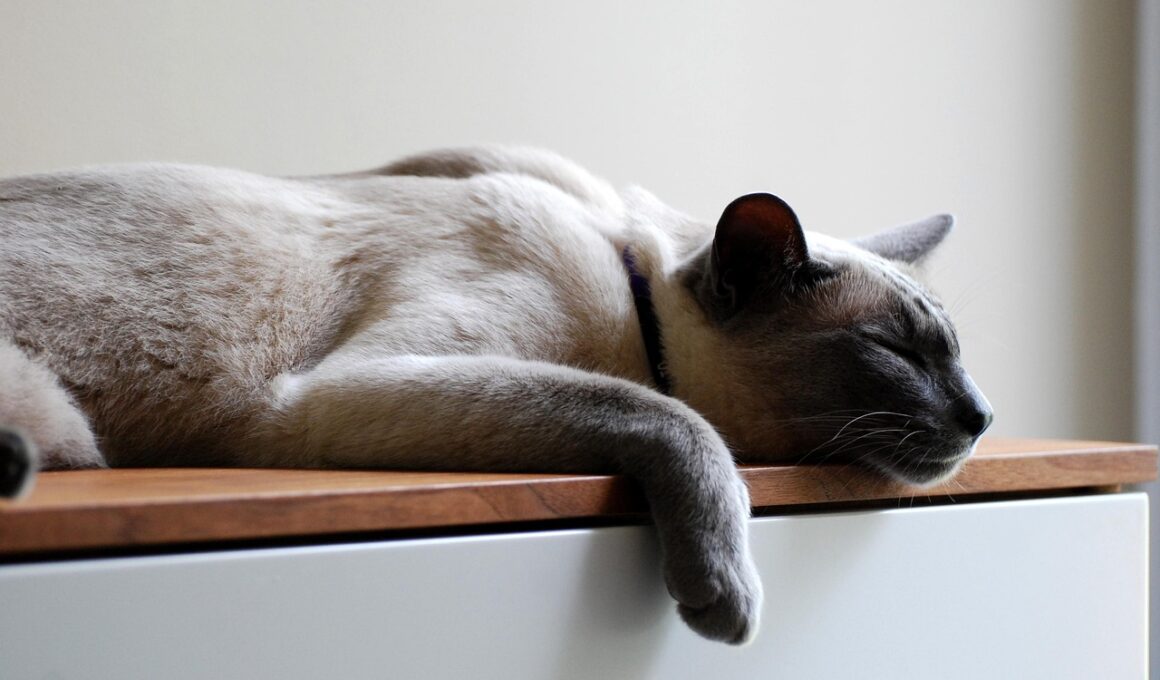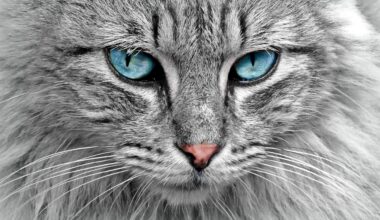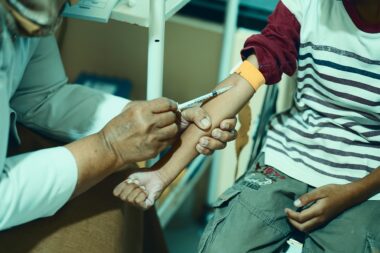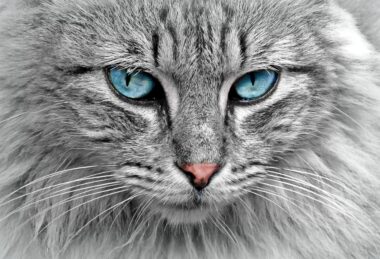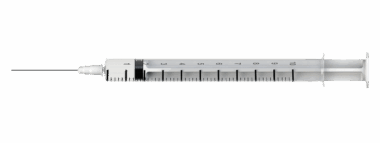Understanding the Recovery Process After Your Cat’s Vaccination
Administering a vaccination to your cat is a significant health choice, but understanding the post-vaccination recovery process is crucial. After receiving their vaccine, your cat may experience mild side effects. It is essential for you to monitor them for any reactions, which typically include localized swelling or soreness at the injection site. Other common symptoms might include a temporary decrease in activity levels or changes in behavior, including lethargy or reduced appetite. Most reactions are mild and resolve on their own within a few days. However, if more severe symptoms arise, such as vomiting, difficulty breathing, or an unusual swelling, immediate veterinary assistance is necessary. During this recovery period, it is beneficial to keep your cat comfortable in a quiet area, away from loud noises and stressors. Make sure they have access to fresh water and food, especially if they are showing signs of reduced appetite. Providing a warm and safe space will help them rest as they recover from the vaccination process. Keeping an eye on them during this time ensures you are responsive to their needs.
Ensuring that your cat stays hydrated is vital during this recovery phase. In addition to monitoring their water intake, you can provide wet food to encourage hydration. A cat’s body reacts to vaccines as it stimulates their immune system. Your responsibility is to create an environment that supports that immune response. If the vaccination makes them groggy or lethargic, ensure their resting place is comfortable, quiet, and safe. Active playtime or excessive social interactions may stress them during recovery. Besides hydration, provide calm interaction such as gentle petting or soft talking to reassure them. Observe your cat’s behavior closely. If they resume normal activity levels and eating habits within a few days, that’s a positive sign. Should these symptoms last longer than a few days, consulting your veterinarian is the best approach. They can assess if there are any complications or further issues at play that require addressing. Awareness of these post-vaccination symptoms and maintaining a comfortable environment will benefit your cat’s overall health during recovery, allowing their immune system to adjust effectively.
Recognizing Adverse Reactions
The majority of cats handle vaccinations exceptionally well. Nevertheless, there are occasions when an adverse reaction can occur. Severe allergic reactions, though rare, can happen soon after administration. Symptoms may present as hives, facial swelling, or difficulty breathing. These reactions typically require immediate emergency veterinary care, so understanding what to watch for is crucial. Besides allergic reactions, other side effects can include fever, lethargy, or changes in eating and drinking habits. Most of the time, these reactions are temporary and resolve without causing significant health issues. If you notice symptoms persist for more than 48 hours or become severe, contact your veterinarian for guidance. Being proactive helps ensure swift treatment should your cat experience an adverse reaction. After vaccination, keep a close watch on your cat for at least 24 to 48 hours. This period is when side effects are most likely to occur. Maintain a record of any changes in behavior, appetite, or health to report to your vet. Awareness and observation can prevent serious complications and keep your feline friend safe and healthy.
Monitoring your cat’s behavior post-vaccination also includes watching their daily routines closely. Some cats may show signs of mild discomfort and require a few days to bounce back. If your furry friend struggles with appetite, try offering small, enticing meals that may entice them to eat. Soft foods or treats can be appealing and motivate your cat to eat. Additionally, the environment can impact their recovery; ensuring a tranquil atmosphere without disturbances will help them recuperate. Cats thrive in peaceful surroundings, so minimize loud noises or activities that may stress them. If your cat has other pets, supervise their interactions; playful behaviors may exhaust or irritate a recently vaccinated cat. Remember also to provide plenty of opportunities for rest without excessive stimulation. If your cat is often playful or energetic, they may try to re-engage with typical activities. Supervise such activities to avoid any strain during recovery. Routine is key; a gentle and consistent schedule can help guide their recovery while ensuring they feel secure and loved during this sensitive period.
Seeking Veterinary Guidance
Consulting with your veterinarian post-vaccination can provide peace of mind. Discussing your cat’s health and ensuring they are recovering as anticipated is essential. Your vet can offer tailored advice based on your cat’s specific health history and any prior vaccination reactions. It may also be beneficial to keep the vaccination records on hand for future appointments. These records can assist the veterinarian in determining any patterns and exact vaccinations previously administered. Regularly scheduled veterinary check-ups should align with your cat’s vaccination dates, allowing for timely evaluations of their health. If any unusual side effects persist or arise, don’t hesitate to reach out to your veterinarian for additional advice. Being proactive about your cat’s health can ensure they continue to thrive after vaccinations. Your veterinarian can guide appropriate foods to provide, hydration recommendations, and suggested routines for recovery. Clear communication with your vet facilitates thorough care while also addressing concerns in real-time. Taking these precautionary steps aids in establishing a healthy routine for your cat post-vaccination.
In addition to seeking veterinary guidance, educating yourself about vaccinations and their effects is immensely beneficial. Understanding how vaccines work will alleviate fears regarding potential side effects. The primary aim of vaccination is to stimulate your cat’s immune response without causing disease. This process equips your cat’s body to fight off severe illnesses. Familiarize yourself with the types of vaccines available, their effectiveness, and any potential risks. Collaborating with your vet can also help clarify which vaccinations are appropriate based on your cat’s age, lifestyle, and health condition. Engaging in research can empower you as a pet owner while fostering a sense of responsibility towards prevention. Empowering yourself with knowledge translates to more effective post-vaccination care strategies for your cat. Additionally, educating other family members about what to expect after the vaccination can create a supportive environment. Properly informing everyone can positively affect your cat’s recovery process. By remaining vigilant, educated, and in touch with your veterinary professionals, you will be further prepared to ensure your cat’s overall health throughout their life.
Final Thoughts
In conclusion, the recovery process after your cat’s vaccination requires attention and care. Recognizing what to expect and how to provide comfort will help make the transition easier for both you and your feline friend. Monitor for any adverse reactions closely and maintain open communication with your vet for tailored advice. Following these simple guidelines will ensure your cat recovers smoothly and feels secure post-vaccination. Always have fresh water available, and consider providing enticing meals to restore normal eating habits. A calm environment will help your cat relax as their immune system adapts and responds to the vaccine. If your cat experiences unusual symptoms or prolonged reactions, do not hesitate to contact your veterinarian. Your proactive measures are vital in ensuring the effectiveness of the vaccine and the general well-being of your cat. With proper care and vigilance, your pet should recover nicely after vaccination. Building these routines into your overall pet care plan will promote long-term health and happiness for your cat family member. Remember, your pet’s well-being is in your hands, and they rely on you to give them the best possible care.
As vaccinations help provide immunity against various diseases, understanding their significance reinforces the importance of post-care. Staying educated about vaccinations paves the way for a healthier future for your cat. Consider joining community discussions or forums dedicated to pet health, where shared personal experiences can provide insight and enhance your knowledge base. Establish connections with fur parents undergoing similar experiences; sharing stories and tips can further empower and ease any uncertainties. Taking an active role in your cat’s health journey strengthens the bond you share with them. Participate actively in their care by managing their vaccinations and leading them into a seamless recovery. Always remember, every cat is unique, and each may respond differently to vaccination. Pay close attention to their individual needs, adjusting care envelopes as required to best suit them. Investing time to educate yourself—through literature, forums, or vet guidance—will amplify your capability to provide top-notch care. Keeping your cat’s health on track plays a crucial role in their overall longevity and quality of life. Embrace this learning journey as a blessing, and take pride in being an informed and responsible pet owner while ensuring they flourish.
